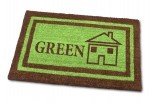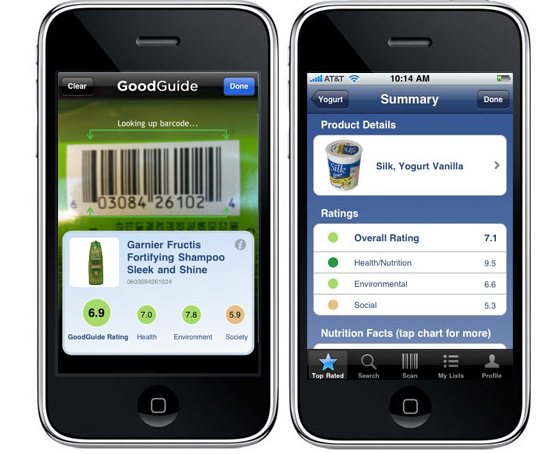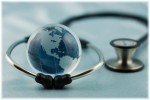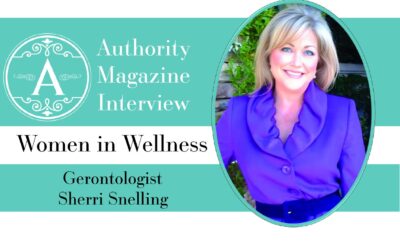 In honor of Earth Day, I thought it might be interesting to investigate some products and tips for caregivers that fall into the “green movement” category. Contrary to popular misperceptions, living green does not have to be expensive or disruptive to your or your loved one’s life. It is simply making choices that are wiser – however small those choices may be – that ultimately contributes to helping the environment and can also contribute to your loved one’s health. The additional benefit is that you gain satisfaction that your effort as part of this green movement and as a caregiver for your loved one are preserving our planet and our people (one loved one at a time).
In honor of Earth Day, I thought it might be interesting to investigate some products and tips for caregivers that fall into the “green movement” category. Contrary to popular misperceptions, living green does not have to be expensive or disruptive to your or your loved one’s life. It is simply making choices that are wiser – however small those choices may be – that ultimately contributes to helping the environment and can also contribute to your loved one’s health. The additional benefit is that you gain satisfaction that your effort as part of this green movement and as a caregiver for your loved one are preserving our planet and our people (one loved one at a time).
Shopping and the Good Green App
One product I ran across in my research is a wonderful mobile app for your iPhone or Android called The GoodGuide which makes it fast and easy to find safe, healthy, green, and ethical products. You simply scan the barcode of a product you think is eco-friendly, organic, etc. and the app provides an instant 1-10 rating and other information while you are shopping in the store. Led by Professor Dara O’Rourke of UC Berkeley, GoodGuide’s science team is comprised of chemists, toxicologists, nutritionists, sociologists, and lifecycle analysis experts who have rated more than 120,000 products and companies on their health, environmental and social performance in the categories of food, personal care, household products, electronics and apparel. You customize the app by selecting the categories most important to you to create your personalized shopping list.
The GoodGuide system takes into account the potential impacts of using a specific product on health. Health impact is assessed by combining 1) negative metrics (such as whether the product contains toxic ingredients of concern or ingredients that have low nutritional value) with 2) any available positive metrics (such as whether the product has been certified as safe or healthy by a credible third-party). For personal care and household chemical products, scores are based on the presence of ingredients of concern. For food products, scores are based on the nutritional value of ingredients.
For additional shopping, there are online shopping sites dedicated to care-related products like FirstStreet and Caregivers Partnership. One site I found that highlighted a green product was – CaregiversAide. The attractive, environmentally-friendly adult bib featured on this site is machine washable and dryable and comes in a variety of patterns on decorative 80-100 percent cotton – everything from footballs to daisies to American flags – and is backed with a waterproof barrier of polyurethane. The bibs cost a little more than less earth friendly products that use a vinyl waterproof barrier but CaregiversAide offers a shopper’s discount on these green products.
 Avoiding Infections by Creating a “Green” House
Avoiding Infections by Creating a “Green” House
One of the biggest concerns for caregivers is keeping your loved one’s home or living environment as clean and disinfected as possible, especially if they have recently been released from the hospital. A threat for older Americans is Methicillin-resistant Staphylococcus aureus (MRSA), a bacterium that causes infections in different parts of the body. It is tougher to treat than most strains of staphylococcus aureus — or staph — because it is resistant to some commonly used antibiotics.
According to WebMD, the symptoms of MRSA depend on where your loved one is infected. Most often, it causes mild infections on the skin, like sores or boils. But, it can also cause more serious skin infections or infect surgical wounds, the bloodstream, the lungs, or the urinary tract. MRSA is spread by contact, either through touching another person who has it on the skin or touching objects that have the bacteria on them.
The Journal of the American Medical Association, shows that the average age of people with MRSA in a hospital or health care facility was 68 and the bacteria often attacks people with weak immune systems. Infections can appear around surgical wounds or invasive devices, like catheters or implanted feeding tubes. Rates of infection in hospitals, especially intensive care units, are rising throughout the world.
Following are some typical household items and cleaners that are important for both the health of the environment and creating a healthy home for your loved one:
- Baking Soda – cleans, deodorizes, softens water, scours.
- Soap – unscented soap in liquid form, flakes, powders or bars is biodegradable and will clean just about anything. Avoid using soaps which contain petroleum distillates.
- Lemon – one of the strongest food-acids, effective against most household bacteria.
- Borax – (sodium borate) cleans, deodorizes, disinfects, softens water, cleans wallpaper, painted walls and floors.
- White Vinegar – cuts grease, removes mildew, odors, some stains and wax build-up.
- Washing Soda – or SAL Soda is sodium carbonate decahydrate, a mineral. Washing soda cuts grease, removes stains, softens water, cleans wall, tiles, sinks and tubs. Use care, as washing soda can irritate mucous membranes. Do not use on aluminum.
- Isopropyl Alcohol – is an excellent disinfectant, however use this product cautiously as some reports indicate that isopropyl alcohol buildup contributes to illness in the body.
- Cornstarch – can be used to clean windows, polish furniture, shampoo carpets and rugs.
- Citrus Solvent – cleans paint brushes, oil and grease, some stains. Be cautious here too — citrus solvent may cause skin, lung or eye irritations for people with multiple chemical sensitivities.
- Sponges – substitute traditional sponges, typically made of polyester or plastic which are slow to break down in landfills and are treated with triclosan, a chemical that can product chloroform (a suspected carcinogen) when it interacts with chlorine in tap water. Instead try a cellulose sponge found at natural food stores which are biodegradable and soak up spills faster.
When it comes to green brands, consider these household cleaners:
Skoy Eco-Cleaning Cloths offers cleaning cloths that are non-toxic, extremely absorbent (15x paper towels), reusable, and biodegradable.
Simple Green offers a variety of household cleaning products that are earth-friendly and non-toxic.
Nellie’s All Natural Products include: laundry soda, mothballs, dryerballs, oxygen whitener for stain removal that contain non-toxic ingredients.
The green movement is going strong and by keeping up, caregivers can create healthier homes, healthier loved ones and a healthier planet. Go green today.






I using Bidet (Toilet Seat Attachment) at home. It’s GREEN and save money (Less Toilet Paper Use).
I install Bidet4me 1 each of MB-1000 (Fresh Water Spray) and MB-2000 (Warm Water Spray) for my 2 bathrooms. Both are very easy to install (included DIY accessories) and I search online and local stores, Bidet4me has best value. Check overstock.com and sometimes they have promotion for either free shipping or 10% discount !
Go “GREEN”
Thanks for this input – I will post this to our Caregiving Club Facebook page at http://www.facebook.com/CaregivingClub. Appreciate your interest in the blog!
Sherri
Thank you.
Using Bidet is really Green product that don’t need to spend a lot but also benefit the family health life. I love the slogan “Clean, Hygienic, and Comfortable Lifestyle”